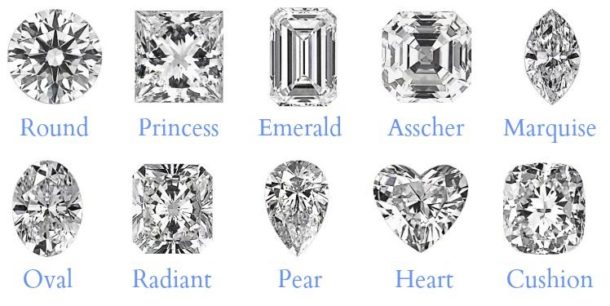Diamonds are expensive, they’re really expensive and you know you can’t go wrong when buying a diamond. If you read just about any buying guide for diamonds, you’ll come across diamond cuts which are the foundation of any buying guide. Cuts in diamonds are so important; they literally decide how appealing a diamond will look when worn over the finger or ears. Before you set out to buy a diamond, make sure you read about the different cuts of the diamond. This will give you a good idea on what you will get through your investment.
Here are the 10 diamond cuts
- Round diamonds
- princess cut diamond
- oval diamond
- marquise diamond
- pear shaped diamond
- Cushion cut diamond
- emerald cut diamond
- Asscher cut diamond
- radiant cut diamond
- Heart shaped diamond
Want to see visuals? Check out this diamond infographic.
Although all diamonds are great, we’ll specifically look at the Asscher diamond cut.
The asscher diamond cut was incepted in 1902 by the Asscher brothers of Holland. Both were known at the time for cutting the largest rough stone of the world at that time. Asscher diamond cuts rose to popularity in 1920s. Now days they are mostly found in antique shops. But in 2002, nearly after 100 years after the initial cut, it started to rise in popularity. But it didn’t just make a comeback, it also brought with it many modifications that allowed for a more brilliance cut than ever before.
Today the asscher cut is quite similar to the square emerald cut; you could say the two are pretty much the same. The only difference is that it has a higher crown, larger step facet and a smaller table than the emerald cut. This modification is a bit different from the emerald cut but it produces more brilliance over all in the finished product. If the asscher is well cut, it will have concentric squares that can be easily looked upon through the table. This is because of the pavilion facets that are properly positioned underneath.
Much like the emerald cut, the asscher cut also has cropped corners. But because it is principally a square shape, the cropped corners on the ends will make it look a lot like octagonal. The classic diamond cut is almost square, but they can also be obtained in rectangular shape if you let the jeweler know your personal preference.
